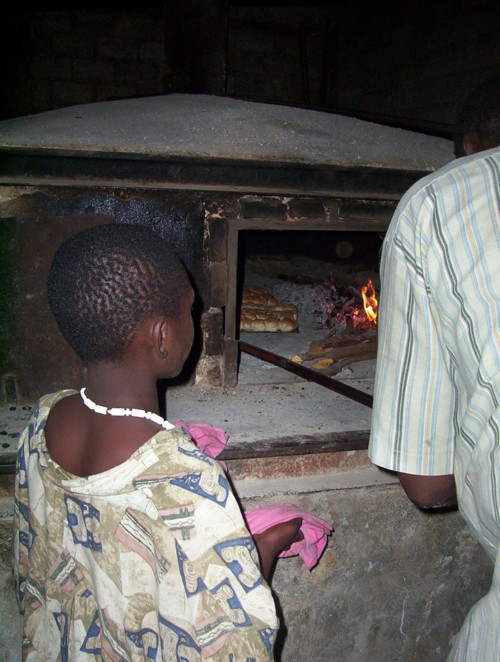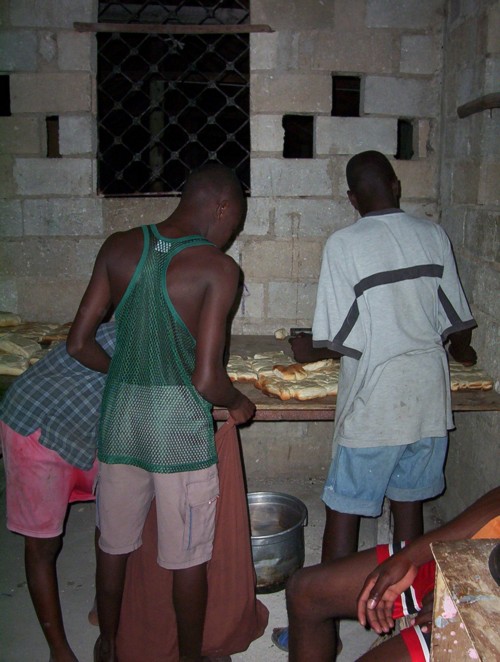 Bread
Bread
Discussion
Join
In the "House of Hope" orphanage, where the main diet consists of
bread and sweet punch twice a day, you either must bake your own bread
or you will starve. The price of baked bread has skyrocket and the
orphanage can no longer afford to buy bread for nearly two hundred
children.
Children in the darkness of the night, wearing no protective gear, help
in baking the bread, with few pieces of precious firewood. While the
youth in US, a short shuttle flight off the Port-Au-Prince Airport,
enjoy their nightly Sitcoms and workout to shed the much excess
weight, the emaciated Haitian Orphans are in throes of baking so they
may survive another day and indeed they are considered the few lucky
Haitian children who can afford bread on daily basis.
Some days there is no bread, either because the water was not available
or there was no firewood or no flour. Each serving consists of two
small buns
of bread with a warm sweet drink served only at dinner as a special
treat. (If there was sugar)
These children do not comprehend the foreign policies of White House
nor they can fathom what transpired in Haitian history nor understand
the senseless animosity of the wealthy Haitians and so far as they are
concerned
either that oven heats up this night or tomorrow is a very hard day.
The Sufis, eye-witnessing the brutalities against the Haitian children
humming unisonous with their melancholy, moaning for the loss of That
Beloved:
Why couldn’t this trip’s terse & lamented poem
Had no last verse?
Why couldn’t this wasted life of yours & mine
Had no last breath?
The last of this poem
The end of my voyage

And the final moment & last breath
That moment of capricious arrival
Background: Orphanage in Gressier, Leogane Haiti, March 2005. If you
care to help DIRECTLY please call the director of the orphanage Alice
Barthole in US: 845-425-5611, Haiti: 011-509-413-1779,
011-509-246-1224. Children’s names: Top: Omanes Celés, Bottom:
from left Exilus Gesner, Laurant Ely and Genesté Osmane.
© 2005-2002, Dara O. Shayda
 Bread
Bread 